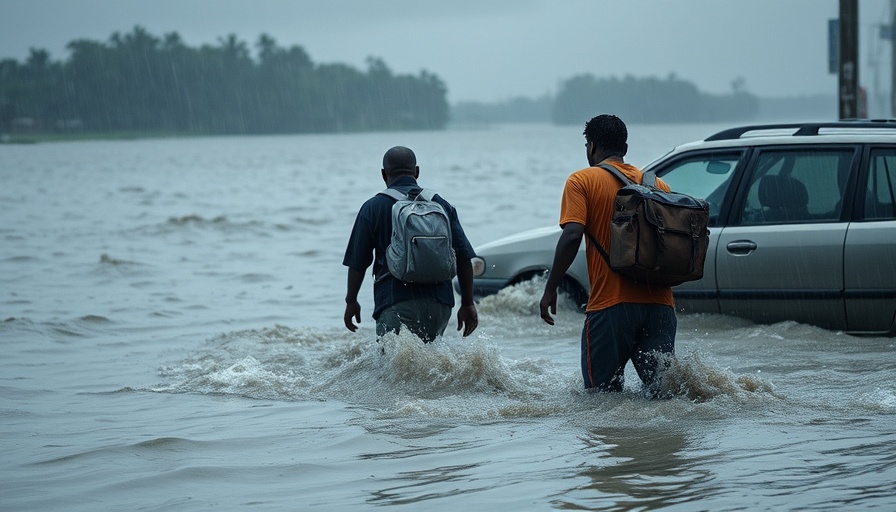
Climate Challenges Intensifying: A Call for Urgent Action
Recent deadly floods worldwide have exposed alarming deficiencies in early warning systems, according to the UN's World Meteorological Organization (WMO). Events in regions from the Himalayas to Texas highlight how rapidly changing climate conditions are not only leading to increased rainfall but also devastating impacts on communities. As WMO's Stefan Uhlenbrook pointed out, the alarming frequency and intensity of flash floods are fueled by urbanization, land use changes, and climate change, which enables the atmosphere to retain up to 7% more moisture for every degree Celsius of warming. This year alone has seen significant tragedies, raising questions about preparedness and infrastructure.
The Cost of Inaction: Lives and Billions at Stake
Floods and flash floods are no longer just seasonal disruptions; they represent a continual risk costing thousands of lives annually and inflicting economic damage running into billions. In 2020, floods in South Asia claimed over 6,500 lives and caused damages exceeding $105 billion. Two years later, Pakistan faced similar catastrophes, resulting in over 1,700 fatalities and impacting 33 million lives. As climate impacts grow, the humanitarian crises triggered by such floods emphasize the urgency for robust responses not just in flood-prone areas but globally as well.
A Multi-Dimensional Approach to Flood Management
Addressing the flood threats necessitates a synergistic approach that combines enhanced early warning systems with effective urban planning and land management. Policymakers must integrate local knowledge and modern technology to develop responsive and adaptable strategies. These strategies could include the establishment of real-time rainfall and flood monitoring systems, which are essential for timely evacuations and mobilization of rescue efforts. Moreover, international cooperation plays a vital role, especially in sharing technological advancements and data across borders.
World Leaders and Business: The Call for Action
Business leaders and investors have an imperative role to play amid this crisis. The economic repercussions of inaction, manifesting as financial losses and disrupted trade, compel stakeholders across sectors to prioritize climate-resilient investments. The urgency of responding to climate change can no longer be an option but a necessity, as the social and economic implications extend far beyond immediate geographic delineations. Collaboration between governments and private sectors is key to fostering initiatives that support sustainability and resilience against future flooding.
If business leaders, policy specialists, and global citizens fail to react now, the future may hold escalating disasters that leave communities ill-prepared and vulnerable. As the WMO emphasizes, fostering awareness and enhancing warning systems can no longer wait; it is essential for safeguarding lives and economic stability worldwide.
 Add Row
Add Row  Add
Add 


Write A Comment